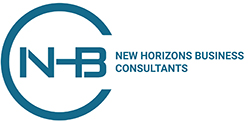Even though the UAE is a global business hub, new businesses should have some awareness of the Arab culture and the business etiquette that may be prevalent in the local business environment. In the Arab world, a large part of business is conducted on the basis of personal relationships and mutual trust.
Working hours
The official weekend in the UAE falls on Friday and Saturday. Some smaller private companies only close their operations on Fridays. The working hours for government offices generally are 7.30 AM till 3 PM. Private offices tend to keep longer hours with working days of 8 – 10 hours daily. During Ramadan, working hours are shortened by two to three hours with most of the work accomplished in the early hours of the morning or much later in the evening after the day’s fast is broken (after sunset).
Cultural norms
Good manners and courtesy are prized attributes. Although one should always be on time for a meeting, know that being punctual is not considered particularly important in the Arab world and you may be kept waiting before and during a meeting. As the meeting commences, greet the most senior person first. It is advisable to limit the number of meetings per day to accommodate meetings that may run late. Do not be concerned if the meeting is interrupted by other guests or telephone conversation. The hard-hitting western approach to business relationships is generally not welcome, so once again, be patient. Be aware that what may seem like evasiveness on the part of a host may in fact be a cultural reluctance to directly refuse a request.
Guests will always be offered refreshments in an Arab home or office. Frequently, this will be Western-style tea or coffee. However, guests may be served a sweet, black tea or a light Arabic coffee flavoured with cardamom. At least one cupful should be accepted as it may be considered discourteous to refuse. Consider taking time to drink a beverage and take the opportunity to establish relationships. Hospitality is a way of life in the Arab world and business is frequently conducted over lunch or dinner – likely in a hotel or restaurant. It is considered polite to return the extended invitations.
Dress Code
Dressing conservatively is appreciated and advisable. Men should wear a suit or long pants with a shirt and women’s business clothing should cover arms and legs to at least over the knee. It is not necessary for women to wear a headscarf. Local UAE nationals will often wear their traditional Emirati clothes, such as the kandura, an ankle-length white shirt woven from wool or cotton. A ghutra covers the head and is held in place by the agal, a black cord. Many local women wear an abaya, a long black flowing over-garment, usually worn over their western clothes or over a traditional long-sleeved full-length dress known as a jalabeya. A black scarf called a shayla is draped over the head. The Emirati national dress is used in everyday life and when conducting business. It is a symbol of pride and identity that has been designed with the dual intent of providing comfort and adhering to religious beliefs.
Language
Although Arabic is the official language, English is widely used in business transactions in the UAE. Hindi and Urdu are also common languages used in business. If you anticipate doing business with the local market might want to consider printing business cards in English and Arabic and ensure that all brochures and presentation material are in full colour and of good quality.
Identifying the decision-maker
Although this is changing rapidly and may not apply to all large firms or foreign firms, companies are often a family affair with the ultimate decision-maker being the head of the family. Even when this is not the case, it is important to identify the decision-maker when doing business in the UAE. A good local partner or agent such as New Horizons Business Consultants understand the different organizational structures and will be able to identify the decision-makers in a specific sector. Agents or partners with the right connections can therefore be a great asset.
